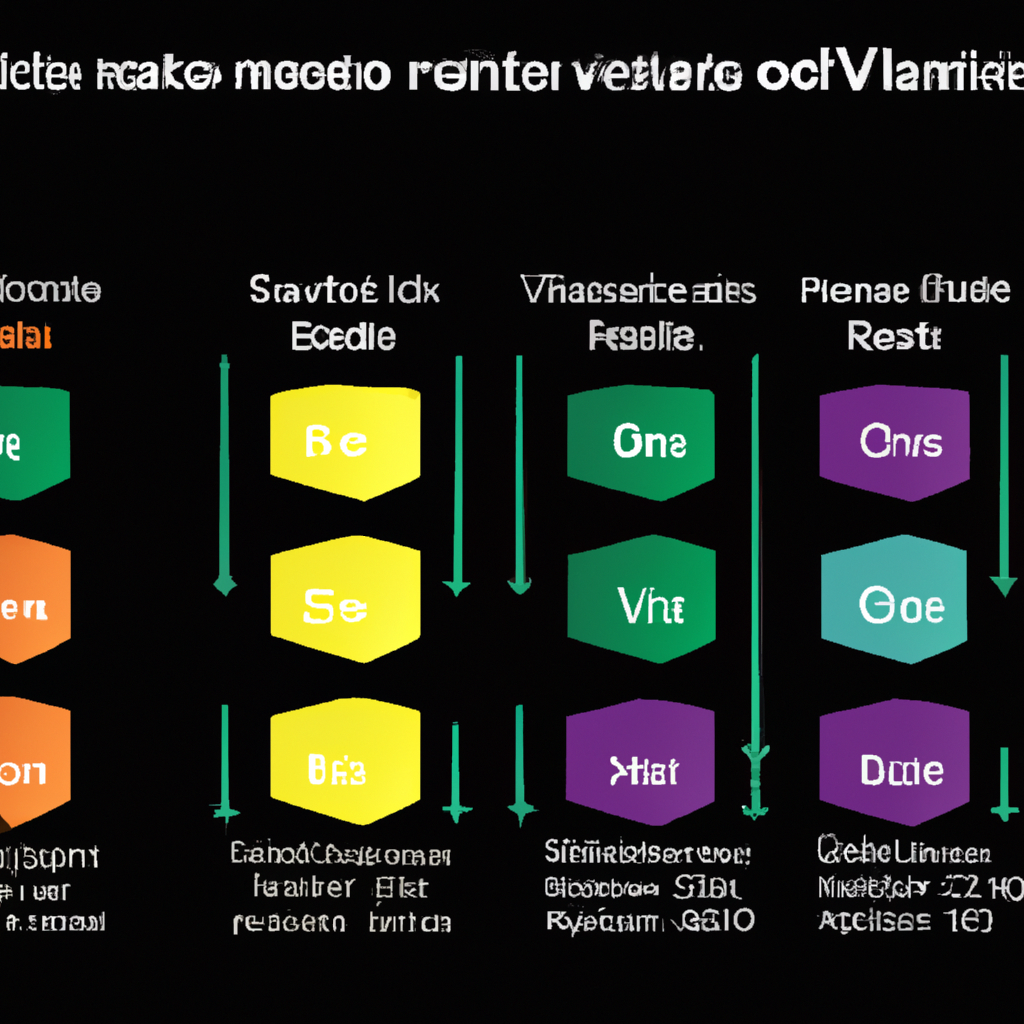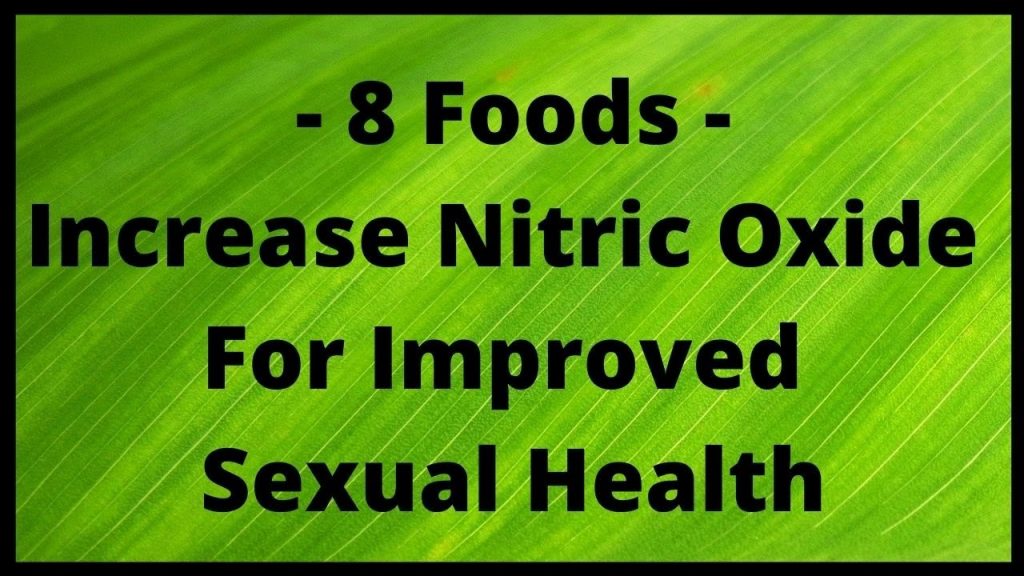Imagine your body as a well-oiled machine, with each part working in harmony to ensure optimal performance. One of the key components that keeps this machine running smoothly is nitric oxide, a molecule that plays a vital role in many bodily functions.
Nitric oxide helps to relax blood vessels, regulate blood pressure, and enhance blood flow to vital organs like the brain and heart. In short, it’s an essential component for maintaining good health.
But did you know that certain vitamins can help enhance nitric oxide production? By ensuring your body has the necessary nutrients to produce more nitric oxide, you can potentially improve your overall health and reduce your risk of developing certain diseases.
In this article, we’ll explore the role of vitamins in enhancing nitric oxide production and how this can benefit your health. We’ll also delve into some of the mechanisms behind nitric oxide production and discuss potential applications for disease prevention and treatment.
So get ready to learn about how these powerful molecules can help keep your body functioning at its best!
Key Takeaways
- Vitamins like vitamin C and E are essential for enhancing nitric oxide production.
- Foods high in nitrates, like leafy green vegetables and nuts, can be converted into nitric oxide in the stomach.
- Nitric oxide enhances exercise performance and supports overall cardiovascular health.
- Clinical trials show that vitamin supplementation can increase nitric oxide production and protect nitric oxide molecules from being broken down by free radicals.
The Importance of Nitric Oxide in the Body
Nitric oxide is crucial for maintaining healthy blood vessels and promoting optimal circulation throughout the body. It plays a vital role in regulating various physiological processes, including blood pressure, inflammation, and immune response. Nitric oxide is produced by the body through different signaling pathways involving enzymes like nitric oxide synthase (NOS).
This molecule also acts as a messenger between cells, allowing them to communicate with one another. Dietary sources can contribute to nitric oxide production in the body as well. Foods high in nitrates, such as leafy greens and beets, are converted into nitrites by oral bacteria and later transformed into nitric oxide in the stomach.
Other dietary sources of nutrients that support NOS activity include arginine-rich foods like nuts, seeds, and legumes. Furthermore, vitamins such as vitamin C and E have been shown to enhance nitric oxide synthesis by protecting against oxidative stress.
Understanding the importance of nitric oxide in maintaining healthy blood vessels and overall health is essential. The signaling pathways involved in its production are complex, but incorporating these nutrients into your diet or taking supplements under medical supervision may help promote optimal nitric oxide levels for better health outcomes.
Vitamins that Enhance Nitric Oxide Production
You may be wondering how you can enhance nitric oxide production in your body. Luckily, there are several vitamins that can help with this.
Vitamin C, for example, is essential for the synthesis of nitric oxide and has been shown to increase its levels in the body.
Vitamin D has also been found to improve nitric oxide production, while vitamin E helps to protect nitric oxide from oxidative damage.
Vitamin C
By consuming foods high in Vitamin C, like oranges and strawberries, you can give your body the tools it needs to build a strong foundation for nitric oxide production – like a carpenter with his hammer.
Vitamin C is an essential nutrient that plays a crucial role in the process of synthesizing nitric oxide in the body. It acts as an antioxidant that helps to protect the cells from oxidative stress caused by free radicals while also increasing the bioavailability of nitric oxide.
In addition to consuming Vitamin C through food sources, Vitamin C supplementation is another option for those who want to enhance their nitric oxide production. The recommended dosage varies depending on age, gender, and overall health status. For adults, 75-90 mg/day is generally recommended.
The benefits of vitamin C go beyond just enhancing nitric oxide production; it also supports skin health by promoting collagen synthesis and protecting against UV damage. So make sure to include Vitamin C-rich foods or supplements in your diet for better overall health and enhanced nitric oxide production!
Vitamin D
Get ready to soak up the sun – Vitamin D is the next essential nutrient we’ll be discussing! Vitamin D plays a crucial role in enhancing nitric oxide production by increasing the bioavailability of arginine, which is an amino acid that helps produce nitric oxide.
While sunlight is one way to obtain vitamin D, it can be difficult to get enough from this source alone. Therefore, many people turn to Vitamin D supplementation.
When it comes to optimizing nitric oxide production through vitamin D supplementation, it’s important to consider the optimal dosage. The recommended daily allowance for vitamin D is 600-800 IU per day, but studies have shown that higher doses may lead to greater benefits for nitric oxide production.
However, too much vitamin D can also have negative effects on health. It’s best to consult with a healthcare professional before starting any new supplement regimen and determining the appropriate dosage for your needs.
Vitamin E
Hold onto your hats, folks – we’re about to dive into the benefits of Vitamin E, the antioxidant powerhouse! This vitamin is a fat-soluble nutrient that’s essential for maintaining healthy nerve and muscle function. It’s also crucial in enhancing nitric oxide production, which can help improve blood flow and reduce inflammation in your body.
Here are three things you should know about Vitamin E’s role in boosting nitric oxide production:
Antioxidant Benefits: Vitamin E acts as an antioxidant that helps protect your cells from oxidative damage caused by free radicals. By reducing this damage, it can help keep your blood vessels healthy and functioning properly.
Dosage Recommendations: The recommended daily intake of Vitamin E varies depending on age and gender, but generally ranges from 15-19 mg per day for adults. However, higher doses may be needed for those with certain health conditions or who’re at risk for deficiencies.
Nitric Oxide Production: Studies have shown that Vitamin E supplementation can increase nitric oxide production in individuals with cardiovascular disease or diabetes. This increased production can lead to improved blood flow and reduced inflammation in these populations. So if you wanna enhance your nitric oxide levels and support overall cardiovascular health, consider adding some extra sources of Vitamin E to your diet or supplement routine!
Mechanisms of Nitric Oxide Production
The intricate process of nitric oxide production involves various enzymatic reactions within the body’s cells. In order to produce nitric oxide, the amino acid L-arginine must first be converted into L-citrulline by an enzyme called nitric oxide synthase (NOS). There are three types of NOS enzymes: neuronal, endothelial, and inducible. Each type is regulated differently and can be influenced by both endogenous and exogenous factors.
Endothelial NOS (eNOS) is responsible for producing the majority of nitric oxide in the body. Its activity can be regulated through various mechanisms such as phosphorylation, calcium signaling, and gene expression. Dietary sources of nutrients like vitamin C and polyphenols have been shown to enhance eNOS activity and subsequently increase nitric oxide production.
Inducible NOS (iNOS) is mainly activated during times of inflammation or infection. Its activity can also be influenced by dietary sources such as omega-3 fatty acids which have been found to downregulate iNOS expression.
Neuronal NOS (nNOS) is primarily involved in neurotransmitter release and its activity can be modulated by calcium levels.
Understanding the various mechanisms involved in nitric oxide production is crucial for enhancing this important molecule’s bioavailability within the body. Incorporating dietary sources of nutrients that regulate NOS enzymes such as vitamin C, polyphenols, and omega-3 fatty acids may provide a natural means of optimizing nitric oxide production.
Health Benefits Associated with Increased Nitric Oxide Levels
Imagine feeling like a superhero with increased blood flow and improved workout performance, all thanks to the amazing benefits associated with boosting your body’s levels of nitric oxide. This wonder molecule has been shown to enhance exercise performance by improving oxygen delivery and reducing fatigue.
In addition, it also plays a crucial role in maintaining cardiovascular health. Studies have found that increasing nitric oxide levels can improve endurance during exercise by reducing the amount of oxygen needed for physical activity. This means you can work out for longer periods without experiencing as much fatigue or muscle soreness afterwards.
Additionally, this increase in blood flow helps supply vital nutrients and oxygen to your muscles, aiding in their recovery and growth. But the benefits don’t stop at better workouts – increasing nitric oxide levels also supports overall cardiovascular health.
By dilating blood vessels and reducing inflammation, this molecule improves blood flow throughout the body, helping to lower blood pressure and reduce the risk of heart disease. So whether you’re looking to boost your athletic performance or just take care of your heart, incorporating vitamins that enhance nitric oxide production into your diet may be worth considering.
Potential Applications in Disease Prevention and Treatment
You can picture yourself living a healthier life with the potential disease prevention and treatment benefits that come from increasing your body’s levels of nitric oxide. Research has shown that higher levels of nitric oxide in the body are linked to improved cardiovascular health, reduced inflammation, and enhanced immune system function.
Clinical trials have demonstrated that supplementing with vitamins such as vitamin C and vitamin E can increase nitric oxide production in the body. These vitamins act as antioxidants, protecting nitric oxide molecules from being broken down by free radicals before they can perform their beneficial functions.
In addition to supplements, dietary sources of these vitamins can also play a role in enhancing nitric oxide production. Foods such as citrus fruits, leafy green vegetables, nuts, and seeds are rich sources of vitamin C while foods like spinach, almonds, sunflower seeds, and avocado are good sources of vitamin E.
By incorporating these foods into your diet and potentially taking supplements under medical supervision, you may be able to enhance your body’s natural production of nitric oxide for better overall health.
Conclusion
Congratulations! You now know the importance of vitamins in enhancing nitric oxide production. By taking the right vitamins, you can boost your body’s natural levels of this critical molecule and enjoy a variety of health benefits.
Research has shown that increasing nitric oxide levels can improve cardiovascular health, enhance athletic performance, and even reduce symptoms of certain chronic conditions. In fact, one study found that supplementing with vitamin C increased nitric oxide production by up to 200%.
So if you’re looking to improve your overall health and wellbeing, consider adding these vitamins to your daily regimen. With their ability to increase nitric oxide levels, they could be just what your body needs to function at its best.


